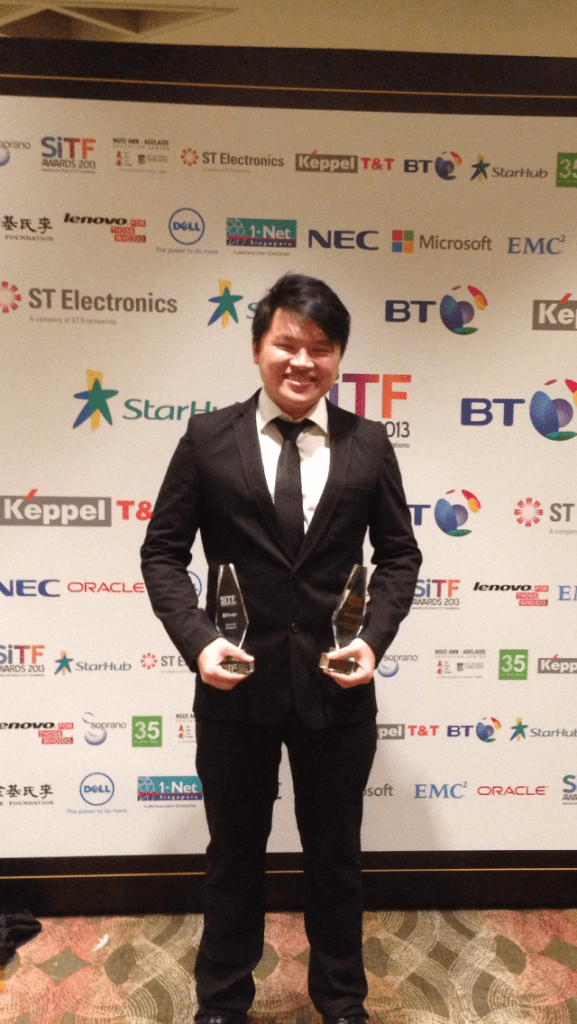Gary is an experienced entrepreneur and marketer, involved in the startup of several successful companies across a broad spectrum of industries.
He co-founded Gaming How, a retail and events company that grew to 20+ employees, leading it to 100% year on year revenue growth, and which received the Spirit of Enterprise Award 2013.
His first tech venture was as the CEO of a cloud based CRM and loyalty solution for retail businesses, for which he presented at StartupAsia Jakarta 2012.
Gary was the Business Development Director for TradeHero, a social investment mobile app, where he was in charge of marketing, product development, strategic partnerships and sales.
He led marketing efforts in user acquisition to achieve 300,000 users in 7 months, helped raised a Series A round of US$10 million from top Silicon Valley VCs, directed PR efforts that led to industry recognition such as SiTF Best Mobile App and Best Startup Awards, and signed key Financial Institution accounts such as Macquarie Bank and SGX.
Gary was also the product manager for FootballHero, a new product from the creators of TradeHero, and led the creation of the sports prediction app from idea to launch in 4 months.
He is currently working on JobKred, a career development platform that uses predictive analytics and data science to help employers hire better, and also helps professionals learn relevant skills and land jobs with personalised learning plans and career recommendations.
Gary studied at Nanyang Technological University, earning a Business (Marketing) degree with minors in Economics and Entrepreneurship.
1. Please share a bit about what you do.
I’m the co-founder of JobKred, a career development platform.
We aim to help people navigate the future of work and fulfil their professional potential, by using our career guidance AI to help individuals understand where their skills can fit complementary careers, and help them stay relevant to industry changes in job requirements.
Currently universities, training organizations, government departments and industry associations use our platform to provide automated career guidance, career development and career opportunities to their pool of talent, and employers use us to access that pool of talent.
2. When you were a kid what did you want to be when you grew up?
Actually I consider myself living the dream, even though the dream consists of long working hours, low income, rejections aplenty and many other struggles and uncertainties.
I’ve always wanted to start and run a business, and my experiences ranged from buying and selling collectible cards in secondary school, managing the junior college co-operative “bookshop”, and finally starting my own business after graduation.
This is my fourth startup, and every single time it’s been extremely tough and painful, but I would still do it all over again.
3. What were you doing before starting this business?
Previously I was head of marketing and business development at a social stock trading mobile app startup called TradeHero.
Before that, I co-founded Gaming How, a video-gaming cafe and events company and Perkstash, a loyalty and rewards platform.
4. How did the idea for your business come about?
During my experience in TradeHero, I was tasked with marketing the app before it even launched.
Even though I had a marketing degree, I remember feeling lost and furiously Googling “How to market a mobile app” while trying to look like I knew what I was doing!
The problem was that I didn’t even know what I needed to know to do my job.
Eventually I learnt skills like digital marketing, data analytics and coding, but I realised the problem extended beyond me when we starting recruiting heavily to grow TradeHero.
From marketers to software engineers, it quickly became clear to me that finding people wasn’t the problem – it was actually being able to find people with the right skills and competencies to do the job that was the problem.
Basically knowledge from university quickly becomes obsolete due to the speed at which industry is changing, and this is part of the reason why the skills gap exists.
Nowadays the problem is even more acute, with lots of conversation about how robots and AI will replace a lot of jobs and leave people jobless.
Industries are also being constantly disrupted, so individuals needing to change industries or job functions is becoming much more common.
So what can be done to help people get the right skills, get the right jobs and keep their jobs?
My co-founder and I started out doing big data research to quantify what makes someone good at a job (hence Job-“Kredibility”), crawling and analyzing millions of resumes, and finding the relationships between skills, experience and job titles.
Eventually we realised that our research led to a recommendation engine that can help people in their careers, and at the same time helps make hiring more efficient.
Thus, we built out our platform, powered by our recommendation engine, to guide people in the future of work, by recommending relevant careers, identifying skills gaps, providing training and showing matching jobs.
To me, getting the right career and job is of vital importance.
It’s actually a major reason why people get an education anyway, to get a good job and career.
So if we can build a product that can help people with such an important, life changing event, I think it could potentially impact a lot of people and would be time well spent.
5. What sacrifices have you had to make to be an entrepreneur?
Your business becomes your focus, and other things tend to suffer as a result.
From relationships, health, wealth, mental well-being, everything is affected.
It’s honestly a tough experience, and my advice to people who want to start a business is: unless you are willing to suffer, and you have people around you who can understand and support you, don’t do it!
If you still do it anyway, congratulations and welcome to the roller coaster!
6. How do you go about marketing your business?
We carry out digital marketing, but word of mouth is quite effective as well.
A lot of our institutional and government interest came about from referrals of people who tried our product or are existing customers.
7. Describe/outline your typical work day?
There’s too much to do, so first thing is a prioritization of the major tasks to accomplish.
This depends on my current focus at that time, so it can be sales, product development, support, marketing, PR, business development, etc.
The workday normally starts with clearing emails though, then working on each prioritized task.
Daytime generally involves meetings or calls with team or clients, and nighttime/weekends for desk-bound tasks.
8. What has been your proudest moment in the history of your business and why?
Actually getting market validation, in the form of emails from users or paying customers, is always something that makes me happy.
I’ve had C-level management of billion dollar companies praise our product, but I feel just as proud if a user emails us saying that our startup has helped them and they will recommend us to their friends.
9. What was the lowest point for you in this business?
The lowest point was when we weren’t generating enough revenue, and I had to let a great team member go.
I know how hard and important it is to find great people, so it really frustrated me that we had to do that, and I felt that I let that team member and my team down.
The upside is that it drove me to focus and push harder on sales so that I wouldn’t have to do that again, which is leading to good results currently for us.
10. If you could go back in time to speak to your 20-year-old self, what would you tell him?
Start earlier, get shit done and don’t give up.
11. What’s your business focus for this year?
To continue growing the business and team, and work with more amazing institutions and partners.
12. What’s a productivity tip you swear by?
Prioritisation.
It’s critically important, whether on a micro level in terms of how you spend your workday, or a macro level in terms of what your company will do.
Another way to call it is focus, prioritizing what to focus on, but essentially it’s important because in a startup resources are always limited, so choosing where to fight your battles is key to winning the war.
13. Is there an app or tool you can’t live without?
Google. I realised how often I use it when I was working for TradeHero in China – Baidu just isn’t the same…





